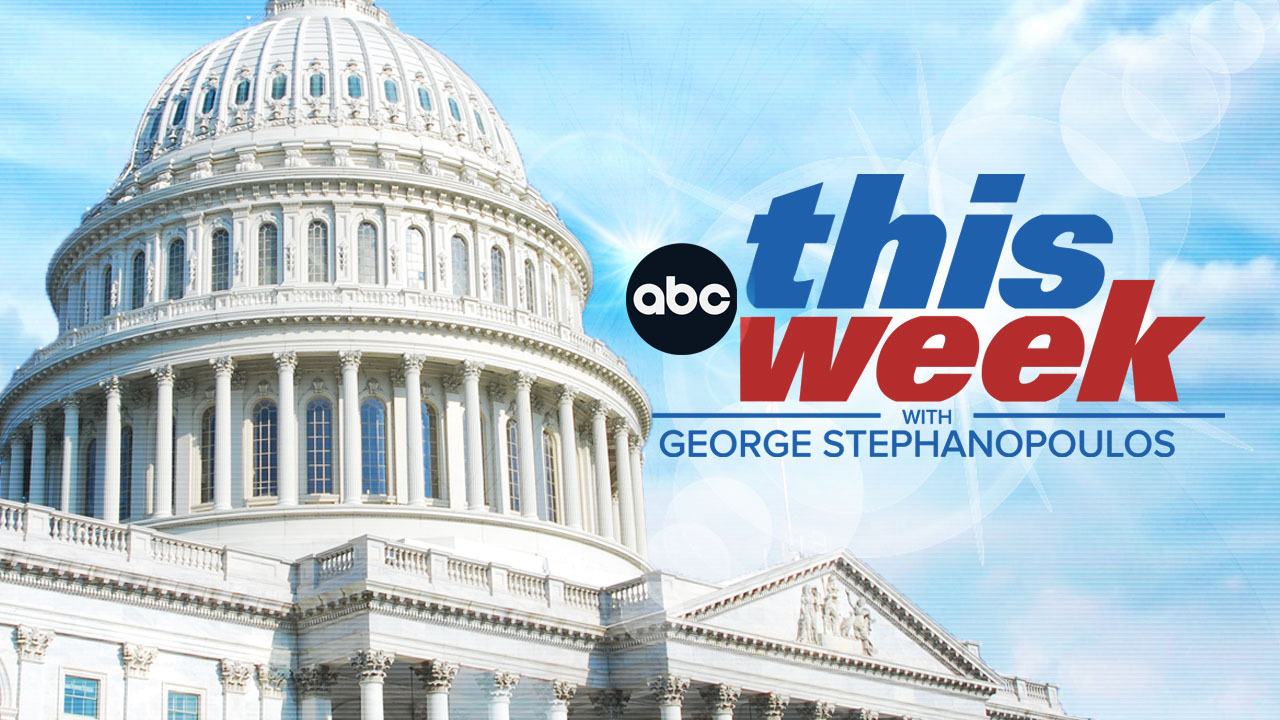WHEN: Today, Thursday, December 14, 2023
WHERE: CNBC’s “Money Movers”
Following is the unofficial transcript of a CNBC exclusive interview with SEC Chair Gary Gensler on CNBC’s “Money Movers” (M-F, 11AM-12PM ET) today, Thursday, December 14. Following is a link to video on CNBC.com: https://www.cnbc.com/video/2023/12/14/sec-chair-gary-gensler-ai-is-the-most-transformative-technology-of-our-time.html.
All references must be sourced to CNBC.
SARA EISEN: The SEC, speaking of banks, making progress on a number of new rules across cyber security, treasury clearance, short selling. On top of that long list, SEC announced this week that they will probe investment adviser’s use of AI, and the future of crypto still hangs in the balance. Joining us to discuss all of that in an exclusive interview is chairman of the Securities and Exchange Commission, Gary Gensler. Chair Gensler, welcome. Good to see you.
GARY GENSLER: Good to be with you, Sara.
EISEN: I mean I just went through so many different rules. Maybe we just start there because it’s one of the criticisms of your leadership at the SEC, that they’re just coming so fast and furiously that you’re not taking the time to really look into the impact and consequences of those rules. Isn’t it better to do less and get them right? How do you respond?
GENSLER: I think we are getting them right, Sara. I think we work for the American public, both the investors that watch your shows and the people trying to raise money, the issuers. Those are our clients. And we’re trying to update our market for the 2020s. We put these proposals out to public comment. We get a lot of feedback. We generally take between a year and two years before we finalize these rules. Yesterday we finalized a very important set of rules around the treasury market. It’s the base of our entire capital markets. The U.S. Treasuries. It’s how the Federal Reserve does its monetary policies. Of course, it’s how we fund ourselves. That rule was out there for 18 to 20 months of comment and feedback from the public.
EISEN: No, on the public point, so you put it out for public comment and then make changes. Why then do you not go out and repropose it so it can be vetted again with the changes?
GENSLER: Because we’ve already put it out there, Sara. We’ve gotten a lot of feedback in terms of this set of proposals for the treasury market. It’s really important for the markets that we lower the risk in these markets. You might remember, as Covid was breaking out around the world, there were challenges in our U.S. Treasury market. Even the year before that, in 2019, there were very significant challenges in the funding of the Treasury market, what’s called the repurchase market. And I would note, this is a market that has a lot of leverage. Hedge funds are borrowing from banks and broker dealers through something called the prime brokerage relationship, but they’re borrowing from them through the prepurchase markets. And we can lower the risk in the system for the American public by implementing this rule.
EISEN: I’m curious what you’re doing on AI, because I know that’s new. It’s something you’re focused on. You’ve warned about the perils of AI when it comes to investment, I think warned that they could create a financial crisis. So, how are you tackling this issue?
GENSLER: Thank you. I started studying this actually when I was honored to be up at MIT as a professor. Artificial intelligence is the, I really truly believe, the most transformative technology of our time, as transformative as the internet, but even if you go back to the 1920s and the whole industrialization and the automobile. AI is already being used across finance. Whether it’s just in cost centers, compliance, various ways you can process claims at insurance companies and the like, but it’s also being used in those robo advising apps and brokerage apps that you might know of. So, what we’ve done is we did put out a proposal with the simple concept that you need to keep the investor’s interest ahead of that of the investment adviser or broker or dealer. And you can’t have the algorithm putting the investment adviser or the broker dealer ahead of the investor.
CARL QUINTANILLA: Chair Gensler, I’m wondering, the performance of these tools and their capabilities, is it running ahead or behind your initial expectations?
GENSLER: I would say that we’re in a mode of acceleration that the technology curve, if you wish, is probably picking up. And it’s about the computational power and it’s about the data analytics behind it. The buzz, of course, is around generative AI but in finance it’s already being used. And I would say this, I do think that there are national economics around artificial intelligence that will lead to dominant or single source based models, just like we’ve seen elsewhere in technology. I mean we largely have one search engine that we all turn to or maybe three cloud providers. I think similarly we’ll end up with a very short list of base or foundation models in artificial intelligence. And, unfortunately, if finance, if the markets are relying on directly or indirectly one base model, that could lead to real problems in finance and a future financial crisis. We could be sitting back on this program, and we’ll be saying, ah, it was that base model that got it wrong and we all kind of invariably went off a cliff based on that model.
QUINTANILLA: Are you seeing symmetry between our policy efforts in this country and Europe and Asia?
GENSLER: That’s a great question. Each jurisdiction is taking it a little differently. In Europe they’re actually passing laws through their parliament and taking a different approach. I think that we are fortunate, we probably have the lead in terms of the technology and the private sector here in the U.S. And then I would say, just thinking about China for a moment, more of the development there is happening at the official sector. I like our approach, it’s in the private sector, but there they may have some advantages where they can take the data from 1.4 billion people and aggregate is all together at the official sector.
EISEN: How much do you take into account, Chair Gensler, worries about stifling innovation and technological deployment and advances when generative AI is coming and a lot of people think it makes us much more productive and can help democratize the markets even further than other technologies have?
GENSLER: Again, I think it’s even broader than generative AI and artificial intelligence is probably already boost economic activity. It’s changing science, it’s changing medicine and radiology and it’s changing finance that can lead to greater access and lower cost. Even those robo adviser apps have lower costs. But it doesn’t mean there’s not challenges as well around explain-ability, around bias, around accuracy. And these challenges we need to sort through as well.
EISEN: How is the – on another topic, approval process going for Spot Bitcoin ETF? I know you’re facing a window for early January. What does that look like?
GENSLER: Well, Sara, we have I think it’s between eight and a dozen filings. I’m chair of a commission. I’m not to prejudge anything. So, that’s going through the process right now. And as you might know, we had in the past denied a number of these applications, but the courts here in the District of Columbia weighed in on that. And so we’re taking a new look at this based upon those court rulings.
EISEN: Market’s excited about it. You’re referring to the Grayscale, the subsidiary of Digital Currency Group. It doesn’t look like you’re objecting to that ruling from the courts, which is why the market is excited that this might finally happen.
GENSLER: Well, look, Sara, we do everything at the Securities and Exchange Commission within the laws Congress has passed and how the courts interpret them. We look keenly to the economics. But I would say this about the crypto field. This is a field that your viewers should be aware that there’s a lot of noncompliance. Noncompliance with the securities laws that are there to help give you the disclosure so you can make the investment decision, but also to protect you against fraud and manipulation. And there’s been far too much fraud and bad actors in the crypto field. There’s a lot of noncompliance, not only with the securities laws but other laws around any money laundering and protecting the public against bad actors there. And so I would note, this is a field where you still don’t have the fundamental information on many of these projects. And the intermediaries of the so-called crypto exchanges are commingling and doing things that we do not allow anywhere else in our financial system.
QUINTANILLA: There is this strange kind of thread of thought within crypto that because there have been high profile either convictions and sentencings or examples of cooperation that somehow fraud’s been flushed out. I would imagine you’d push back on that pretty hard.
GENSLER: I take the other side of that. I think these repeated bankruptcies, these repeated frauds, we’ve brought somewhere between 150 and 175 cases either settled or litigated successfully. And what we have found is, this is really the wild west and it’s around the globe. I would say again, this is a small part of our U.S. Capital markets. But it can undermine confidence when so many people have been hurt and all they can do is then stand in line at a bankruptcy court. And it’s not just one actor and it’s not just, oh, it’s just a few bad actors over here. This is something that pervades a lot of this field globally. And it’s hard for the good faith actors even to compete because there’s so many challenges elsewhere.
EISEN: Well, we eagerly await that decision. I just also have to talk to you, Chair Gensler, about some of the legal challenges. Just this week a group of hedge funds sued on the short-selling disclosure rules that you’ve proposed. There have been numerous other legal challenges to some of your — the buyback ones, the private fund industries. Do all the legal challenges undermine what you’re trying to do?
GENSLER: Look, we do what we do based on the law and how the courts interpret it. And it’s part of our great democracy. These industry trade groups or others have a right to go into court. But I’m very confident about the work that we’ve done. And let me just address a couple of the things you said. Transparency helps our capital markets. Transparency, economists have studied, lowers the cost of capital formation on the one side and raises the returns for investors because it drives to greater competition and efficiency in the middle of the market.
EISEN: Well, they say, though, it discourages short selling and shames them and it’s an important part of the market structure.
GENSLER: I would say, Congress weighed in after the financial crisis and mandated that the SEC address and have rules around the transparency around short selling for investment managers, I think is the term. And I got to the agency nine years later. The SEC had not done a congressional mandate. I’m very proud that we took it up, we proposed something based upon a lot of public feedback. And we adopted a rule. And I think that it’s a really important – I mean for many of those investors out there, the everyday investors that might be investing and looking at these markets remember the events around GameStop, what was that, nearly three years ago. And – no, seriously, like —
QUINTANILLA: I know. I know.
GENSLER: About transparency and the short-selling market. We have a lot of transparency on the long side. Let’s add the transparency on the short side that Congress mandated.
QUINTANILLA: I only chuckle because of the list of issues you’ve had to tackle, from crypto, to China, to SPACs, to memes, to AI. I can’t imagine it’s anything like what you thought when you took the job.
GENSLER: Look, this is a great privilege. I pinch myself. I can’t believe that this boy from Baltimore, neither of my parents went to college, has this opportunity and I’m serving my third president. But, more specifically, the great honor of being part of the 5,000 people at the SEC and that we help oversee the markets and help those issuers and investors. But you’re right, it’s a wide swath of parts of the market. And the base of that market is the U.S. Treasury market.
EISEN: Yes.
GENSLER: I’m just bringing it back because I’m so proud of what we did yesterday. And there’s a lot of leverage in that market. And there’s a lot of risk from time to time. And we want to promote greater efficiency and competition, but also resiliency in that market. We’ve got some really important projects around driving greater efficiency and competition in the stock market that you follow, the equity markets.
EISEN: Yes. Well, there’s been pushback on those proposals, too. So can we expect another two dozen or so rules in 2024?
GENSLER: I don’t want to prejudge anything, Sara, but you’re right about the figures. We’ve now, I think, adopted about 30 proposed rules have now been adopted, again, from China to the Treasury markets to the transparency projects we talked about. But there are really important projects. And, you’re right, it’s about 25 or so that we are still considering the public comments and we’re taking them on only when the staff is ready, the commission’s ready and it’s based on the economics and the law.
EISEN: Well, we look forward to talking to you about each and every one of them, hopefully. Chair Gensler, thank you very much for taking the time.
GENSLER: Thank you so much, Sara and Carl, and happy holiday to all your viewers.
EISEN: Happy holidays to you.


